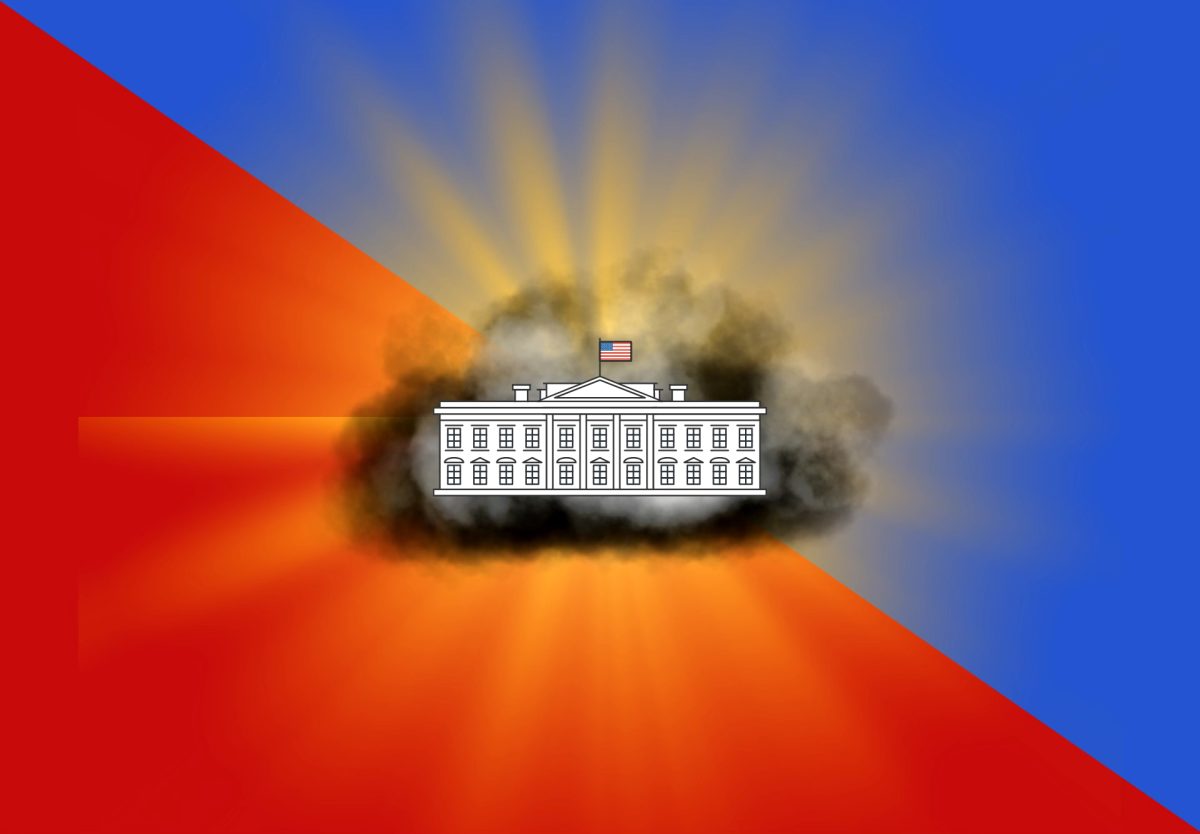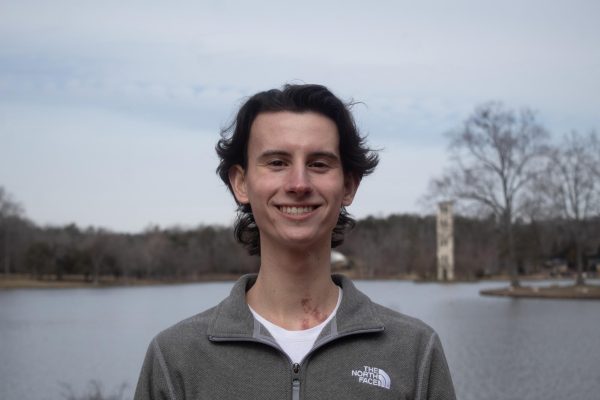“United we stand, divided we fall,” reads the Seal of the Commonwealth of Kentucky, belonging to my home state.
While Kentucky makes up less than 2% of the United States’ population, its motto serves as a powerful warning for the entire nation.
In the 2020s, Americans have a bleak view of the future. According to a survey conducted last year by the Pew Research Center, the majority of Americans envision a future where the United States is more divided, less economically powerful and less important globally.
A brief glance at the homepage of any major news outlet can provide insight into why. We are living in an age in which politicians emphasize personal insults over policy discussions, protests devolve into violent clashes and presidential candidates face political violence. This behavior has gained enough dominance for the Riley Institute to parody our country’s name for the title of their annual StraightTalk series, referring to the U.S. as the “Divided States of America.”
For current college students, the present likely appears to hold more division than any other time in our lives, creating an atmosphere of pessimism that infects our outlook on politics — and our country in general.
While it may be easy to become discouraged in the face of extreme polarization, pessimism enables the perpetuation of political divisions. When a populace is scared for its future, opportunistic individuals harness fear for personal gain, creating a dynamic that encourages partisan attacks rather than cooperation.
The usage of fear as a political strategy is self-reinforcing. Politicians who are elected out of fear must maintain anxieties to justify their reelection, causing them to depict “the other side” as an existential enemy to one’s freedom, culture or resources. This phenomenon creates a race to the bottom in which political candidates compete to generate more fear than each other.
Over time, political parties become defined by who they are not rather than by policy platforms.
The spiral into fear-based politics is not inevitable, nor is this political state permanent. Pessimism may continue to polarize our country, but hope can unite it.
In the aftermath of the September 11 terrorist attacks, President George W. Bush gave a speech in which he declared, “freedom and fear are at war.” Amidst unprecedented violence against the United States, Bush could have manipulated fear of terrorism to depict his political opponents as an internal threat, consolidating his own political support. However, he instead urged Americans to not be consumed by fear, but to unify around hope for a safer future.
While the political unity experienced immediately after September 11, 2001 was short-lived, Bush’s rhetorical response to existential fear provides a strong example of the power that mindset can have on political and social dynamics. If America is to free itself from its current state of polarization, Americans must have hope that our future can and will be better than our present.
However, the idea of rectifying political ills through hope may seem overly conceptual. How can we become more politically hopeful in our personal lives?
It begins with a shift in patterns of thought. Political pessimism resembles the cycles of negativity exhibited by people suffering from clinical depression.
As originally described by psychiatrist Aaron Beck in his groundbreaking book “Depression,” depressed people tend to hold negative expectations of the future based on their present state, leading to negative moods like pessimism, which in turn cause more negative expectations to form. This cyclical pattern afflicts many Americans in their view of politics, even if their mental state is otherwise healthy.
Breaking this pattern requires a conscious change in how we think and speak. Constant emphasis on negative ideas about politics reinforces pessimism. Instead, think of potential solutions to issues facing our nation, celebrate political decisions you support and acknowledge the ability you have to influence our political system. Thinking about and discussing the potential for positive change in America will help create hope of that change occuring.
Gaining hope also requires recognizing that not everything is terrible. The U.S. stock market is at a historic high, crime rates are decreasing, and overdose deaths are declining. Honest observations show that the U.S. is not in rapid decline — our country is actually improving in many respects. It is much easier to be hopeful about the future when understanding of the present is not warped by negativity bias.
These practices may create political hope within the individual, but how can that be practically used to reduce partisanship?
When having political discussions, particularly those including people with different political beliefs, define stances and policy preferences by the impact you hope they will create. Fundamentally, most people desire the same things, such as health, safety and opportunity. By framing your politics as a means of accomplishing a larger outcome that you hope for, other people will often be able to understand and relate to your beliefs better. Still, people can, and will, disagree, but being clear that your intentions are based in hope, not hatred, will facilitate civil discussion and unity in the desire for a better future.
Changing how we think and speak about politics, and encouraging others to do the same, will render ineffective the rhetorical strategies used to promote fear and create division. Focusing our speech on political hopes will demand that discussion centers on how to improve our country, not how others are making it worse.
At Furman, you can help infuse hope into our political culture by speaking up at CLPs, attending discussion events like the Department of Politics and International Affairs’ Pizza and Politics series and intentionally interacting with students across the political spectrum. These mediums provide opportunities to model an optimistic way of engaging with politics. As our community transitions from one of pessimism to one of hope, students will bring this attitude into the Greenville community and beyond, helping change our broader political climate.





































Amy Wallace • Sep 24, 2024 at 8:56 pm The Paladin Pick
So proud of you, Clay! Love, Mom